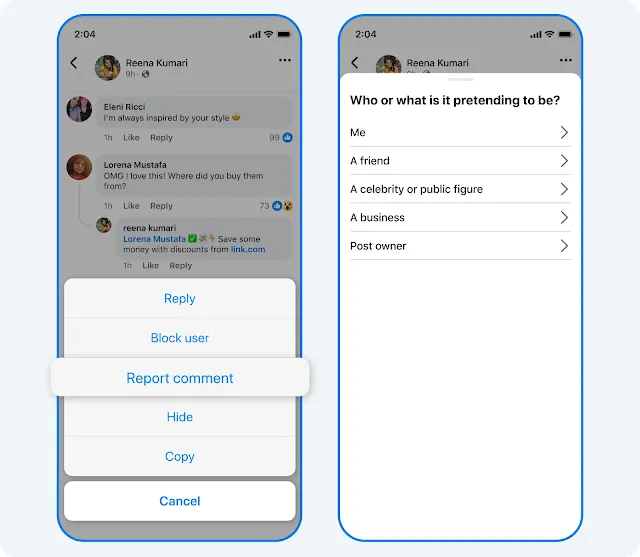Finally! Meta acknowledges and starts a crackdown on Facebook spam
Facebook is actively fighting spam by limiting the reach and cutting off monetization for violating accounts.
After significant user demand and consistent feedback highlighting the pervasive spam issue on Facebook, Meta, the parent company, has officially acknowledged the problem and is now initiating a robust crackdown on offending accounts and content.
In a recent announcement on their official blog this past Thursday, Meta stated its commitment to actively combat spammy content that not only degrades the user experience but also attempts to manipulate the Facebook algorithm to artificially inflate views. For years, Facebook users have voiced increasing complaints regarding deceptive spam tactics, where post content often has no resemblance to the accompanying image. These misleading practices aim to generate views or illicit revenue through dishonest techniques, often exploiting the platform's mechanics for unfair advantage. But now, there's a collective sigh of relief as Meta takes the reins to actively manage and mitigate this type of harmful content.
 |
Misleading Facebook Post: Dog Image, Irrelevant Airplane Caption - Spam Target. Image: Meta |
The company illustrated this issue with an example of an account sharing a dog's picture accompanied by a completely unrelated caption, even using the hashtag "#Airplane" and writing about airplane speed. Facebook now claims to have already taken down a staggering 100 million fake pages – a truly significant number. Furthermore, the social media giant is now limiting the reach of such accounts to their existing followers, and crucially, these types of accounts will also be ineligible for monetization. This step undoubtedly offers a sense of relief to content creators who work diligently to reach a wider audience and still struggle with monetization due to the prevalence of spam. With the reduced visibility of these spam accounts, there's a hopeful expectation that the Facebook algorithm will prioritize genuine user content, providing a fairer opportunity for creators to earn.
Facebook is also actively developing a feature that will empower users to easily flag comments as irrelevant or not aligning with the conversation's spirit. A new down arrow button will appear next to the reply option for comments, allowing users to mark them as inappropriate with a simple click. This is akin to a dislike button specifically for comments. However, the company hasn't yet clarified whether post creators will have the ability to hide these flagged comments. Alongside this, Facebook announced a comment moderation feature designed to help users easily identify potential imposters – whether they are impersonating friends, the post owner, celebrities, businesses, or even themselves – through a "report comment" function.

Facebook's new "Report Comment" feature helps identify and flag spam and impersonation. Image: Meta
The introduction of these features feels like essential updates that arguably should have been implemented in the platform's earlier years, but their arrival now is certainly welcome. The pressing question remains whether these moderation tools will be confined to Facebook or if Meta will extend them to its sister app, Instagram, which is also experiencing a significant influx of spammy content, where the reel content often drastically differs from the captions. Nevertheless, the introduction of these features signifies a crucial investment, as Facebook itself stated, "This is just one of the many investments to ensure creators can succeed on Facebook." This commitment offers a glimmer of hope for a more authentic and less spam-ridden social media experience.

